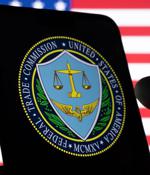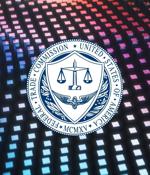Security News

The U.S. Federal Trade Commission (FTC) is continuing to clamp down on data brokers by prohibiting InMarket Media from selling or licensing precise location data. The settlement is part of...

The U.S. Federal Trade Commission continues to target data brokers, this time in a settlement with InMarket Media, which bans the company from selling Americans' precise location data. InMarket is a Texas-based data aggregation company specializing in collecting and analyzing people's location data.

Infosec in brief The US Federal Trade Commission has secured its first data broker settlement agreement, prohibiting X-Mode Social from sharing or selling sensitive location data. In its complaint, the FTC accused X-Mode, which sold its assets to successor firm Outlogic in 2021, of selling raw non-anonymized location data collected through its own apps and an SDK for embedding in third-party applications.

The U.S. Federal Trade Commission (FTC) on Tuesday prohibited data broker Outlogic, which was previously known as X-Mode Social, from sharing or selling any sensitive location data with...

Today, the U.S. Federal Trade Commission banned data broker Outlogic, formerly X-Mode Social, from selling Americans' raw location data that could be used for tracking purposes. Under the order released today, the first time data brokers were barred from sharing and selling users' sensitive location data, Outlogic must now delete all unlawfully collected sensitive location data, including any models or algorithms derived from this data.

The U.S. Federal Trade Commission has started accepting submissions for its Voice Cloning Challenge, a public competition with a $25,000 top prize for ideas that protect consumers from the danger of AI-enabled voice cloning for fraudulent activity. AI can be used to clone someone's voice by analyzing an audio clip of the target speaking to extract unique vocal characteristics and then using the training data to generate new speech.

The Federal Trade Commission is running a competition “to foster breakthrough ideas on preventing, monitoring, and evaluating malicious voice cloning.”

The FTC ultimately reduced this to 500, but said it would likely only lead to the additional reporting of a small number of incidents a year - around 5 percent more that would, by the FTC's estimates, affect 155 extra organizations. The 500-consumer cutoff broadly aligns with state laws around data breach reporting in the US. California, for example, requires similar disclosures to be made in the event that 500 state residents are affected by a breach, whereas the cutoff is set at 1,000 individuals in Alabama.

The U.S. Federal Trade Commission has amended the Safeguards Rules, mandating that all non-banking financial institutions report data breach incidents within 30 days. "The addition of this disclosure requirement to the Safeguards Rule should provide companies with additional incentive to safeguard consumers' data."

The Federal Trade Commission says Americans have lost at least $2.7 billion to social media scams since 2021, with the actual number likely many times larger due to severe under-reporting. "Reported losses to scams on social media during the same period hit a staggering $2.7 billion, far higher than any other method of contact," said Emma Fletcher, a Senior Data Researcher at the FTC. "And because the vast majority of frauds are not reported, this figure reflects just a small fraction of the public harm."